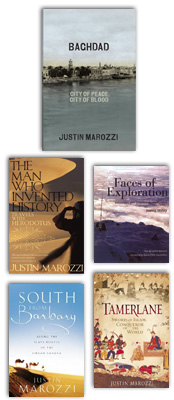It’s difficult to be a peacekeeping force when there’s no peace to keep. It’s difficult when the international community promises you 26,000 peacekeepers, then struggles to give you 10,000. It’s difficult to make much progress when the number of rebel movements involved in the conflict has risen from a handful to more than 30 in the space of two years. And it’s especially difficult to succeed when government militias take it upon themselves to start killing your peacekeepers.
These are the unenviable challenges facing Unamid, the joint United Nations-African Union force charged with bringing peace to Darfur. Created by UN Security Council Resolution 1769 a year ago, Unamid is somehow expected to end a conflict that has lasted almost as long as the Second World War, killed as many as 300,000, according to the UN (10,000 if you prefer the Sudanese government’s estimate), and displaced around 2.5m people, a third of Darfur’s population. Rarely have expectations and realistic possibilities been so ill-matched.
Under the leadership of Rodolphe Adada, former foreign minister of the Republic of Congo, and its Nigerian force commander General Martin Luther Agwai, Unamid is doing a manful job. I spent three months assisting the mission as a communications adviser this summer and saw at first hand the brave work being done in virtually impossible circumstances. With a force of only 10,000 and no armed helicopters it’s hard to protect six million people spread across an area the size of France. One of Unamid’s simplest yet most important tasks is conducting daily firewood patrols, during which peacekeepers escort Darfurian women gathering fuel to cook meals for their families. The patrols are needed to provide security to the women who are otherwise at the mercy of militiamen who rape them with impunity. Ask the Sudanese government about the use of rape as official policy and they’ll tell you it’s a Western invention unknown to Sudan.
Khartoum does a nice line in Doublespeak. On July 8, seven Unamid peacekeepers from Rwanda, Uganda and Ghana were killed in a vicious ambush, the mission’s worst loss of life in its six months. The attack bore the hallmarks of a well-organised Janjaweed attack. In New York, Jean-Marie Guehenno, the UN’s outgoing head of peacekeeping, pointed the finger at Khartoum. A couple of weeks later, Sudanese President Omar al-Bashir suddenly popped up in El Fasher, Darfur. “We want to send this message to the world: we are the people of peace, we want peace . . . we are the only ones who can achieve peace in Darfur,” he told the usual rent-a-mob gathering.More empty words, you might reasonably think. The assurances of Khartoum, which has spent the past five years denying a hand in the ethnic cleansing of Darfur, do not count for much. Yet for the first time in several years, there is real hope in the air and it has nothing to do with Unamid.
On July 14, Luis Moreno Ocampo, the International Criminal Court’s chief prosecutor, formally accused the Sudanese president of war crimes, crimes against humanity and genocide in Darfur. Although the announcement had been widely anticipated, it still stunned the political establishment.
Few doubt that Moreno Ocampo has blown a gust of fresh air into the suffocating world of Sudanese politics. Many commentators fear the decision will wreck any chances of peace, failing to note that there is no peace process to spoil. With his back to the wall, there is no accounting what Bashir might do, they argue, ignoring the fact that he has had carte blanche to do what he likes in Darfur since 2003. In fact, although it is early days, the fallout from the ICC’s landmark move towards the indictment of Bashir looks positive. A friend with access to the highest levels of the regime reports unprecedented conversations at the presidential palace.
“The government’s in meltdown,” he reports. “They just didn’t think it would ever happen. They can’t believe it. The four or five people who run Sudan are now saying to Bashir, look where your policies have got us. They’re telling him, you can go to your rallies and demonstrations, you can shake your fist and rattle your walking stick, but you shut the hell up.” And strange to say, Bashir has been unusually quiet. The men in khaki are said to be furious with him. When the Darfur-based rebel Justice and Equality Movement (JEM) launched a bold attack on Khartoum in May, the president initially refrained from using the heavily Darfurian army to defend the capital, preferring the supposedly more dependable state security agencies. JEM came closer than most realise to toppling the government until the army stepped in with tanks and the airforce.
Now a national cross-party committee has been created to address the Darfur issue and end the conflict. Bashir has suddenly rediscovered an interest in Darfur, promising security, schools, roads and water. Window-dressing while the ICC judges ponder Moreno Ocampo’s evidence? Quite possibly, but these are suddenly interesting times. “There’s going to be a real push now for peace,” my palace mole reports. “Bashir’s got nothing to lose.”
Far from emboldening the Sudanese president and destroying a peace process that doesn’t exist, in other words, the ICC’s potential indictment may have been the best news for Darfur in years. Sudan watchers wonder whether Khartoum will finally ditch the president, who came to power in a 1989 coup, noting that the regime dropped the Islamic ideologue Hassan al-Turabi in the late Nineties in a bid to end its international isolation. Turabi, they note, was a far more important figure to the ruling National Congress Party then than Bashir is today.
Unamid’s dangerous and daunting mission in Darfur will continue but the real chance for peace lies in Khartoum. If Bashir the alleged war criminal is unable or unwilling to take it, he may find his time in charge runs out sooner than he’d like.

